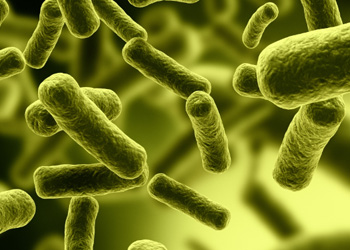New Research Tests C. Difficile Vaccine Efficacy
August 4, 2014

Clostridium difficile (C. difficile) is a bacterial infection that occurs during or after antibiotic use and can make people very sick. In fact, C. diff, which causes symptoms ranging from diarrhea to colon inflammation, kills thousands of Americans every year and is becoming more common, harder to treat and much more expensive. Now, new research from Drexel University College of Medicine details the results of a study investigating an experimental vaccine that proved to be successful in preventing the infection. The study is set for publication in the October 2014 edition of Infection and Immunity.
The experimental vaccine protected 100 percent of animal models against the purified toxins produced by C. difficile, as well as from orogastric spore challenge using parental and hypervirulent strains. Those that received two immunizations did not get sick or show any signs of the disease.

"The protection following just two immunizations is especially important since the time window in humans between colonization with C. difficile and the onset of disease symptoms can be a mere 10 to14 days," says Michele Kutzler, PhD, the study's corresponding author and assistant professor in the Department of Medicine at Drexel College of Medicine. "The vaccine protects against the bacterial toxins by mustering anti-toxin neutralizing antibodies. The success of this study warrants further research in humans."
In some cases, patients who acquire C. difficile can develop serious complications including severe diarrhea, toxic megacolon, bowel perforation, multi-organ failure and death. Once fully developed, the DNA vaccine could prevent the deadly effects of C. difficile infection when administered to hospital patients at risk of acquiring it.
Treating the disease is difficult, as the bacterial spores persist in the hospital environment, where most infections occur. There is no standard, effective treatment for recurrent disease, but a small number of experimental fecal transplants for C. difficile have had a very high success rate, with no adverse reactions.
"The cost of fighting the half million C. difficile infections that occur annually in the U.S. is estimated to be nearly $10 billion, most of which could be saved by a successful preventive vaccine," says Kutzler.
Kutzler's Drexel collaborators on the study included her student, Scott Baliban, and Jeffrey Jacobson, MD, professor and chief of the Division of Infectious Diseases.
Back to Top